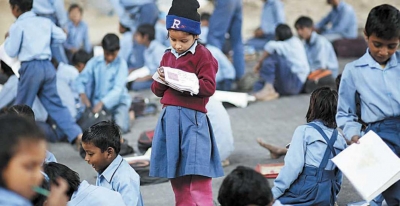
“One child, one teacher, one book, one pen can change the world,” declared 16-year-old Malala Yousafzai at the United Nations headquarters in 2013. Education is the building block of a progressive and enlightened nation.
Every child has the right to go to school, regardless of how rich or poor he or she is, his or her family background or where he or she lives. Every child deserves to learn in a safe environment with friendly teachers who do not discriminate on the basis of gender, caste, class or religion.
Why is education important? It is a means of empowering oneself and developing one’s personality to its full potential. For the economically and socially disadvantaged communities, it offers an opportunity to get out of poverty. Above all, an educated person becomes aware of all his rights.
The UN has laid out a guideline of 4As for governments to fulfil the child’s right to education. It proposes that governments make education available, accessible, acceptable and adaptable. Education must be provided free in schools that have trained teachers and proper infrastructure. Schooling must be accessible to children of all backgrounds. The study material should be relevant and culturally acceptable. At the same time, it should adapt to the changing needs of society.
The Right to Education (RTE) Act of 2009 made education a fundamental right for every child in India. It provides for free and compulsory education up to Class VIII for children aged between 6-14 years. As of 2018, there are over a million government schools in India. The Indian schooling system is one of the largest in the world, catering to over 250 million students.
Picture Credit : Google




